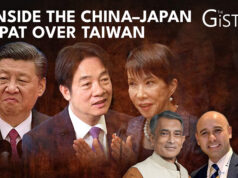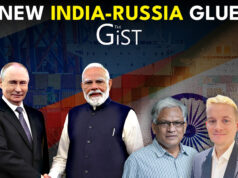Speaking hours after the strikes — which came days after a deadly TTP ambush inside Pakistan and while Taliban foreign minister Amir Khan Muttaqi was on his first official visit to New Delhi — Devasher described the operation as “a dramatic escalation” whose timing was deliberate.
He said Islamabad appeared rattled by Muttaqi’s warm reception in India and New Delhi’s decision to upgrade its technical mission in Kabul to an embassy. “They have been strutting about saying they control the Taliban… and here is the Taliban Afghan minister, who’s gone out of his way and gone and visited India,” he said, suggesting those factors helped precipitate the strikes.
On India’s assurances that the Taliban would protect diplomatic personnel, Devasher said the Taliban would have given “cast-iron” guarantees but added that it is now up to them to ensure those promises are fulfilled.
Asked whether India might formally recognise the Taliban, he argued New Delhi is likely to follow international consensus. Two conditions, he said, complicate recognition: the absence of an inclusive government and the Taliban’s treatment of women. Meanwhile, India’s plan to build housing for Afghans expelled from Pakistan was seen by Devasher as both a humanitarian gesture and a signal — a continuation of India’s people-to-people ties and relief assistance to a traumatised population.
Devasher traced the Kabul-Islamabad enmity to structural issues such as the unresolved Durand Line, and warned that ungoverned, rugged eastern regions of Afghanistan remain sanctuaries for extremist groups. While asserting the Taliban have no expansionist agenda, he cautioned that organisations like ISIS and al-Qaida could “radiate outwards” and pose threats to Central Asia and India.
Diplomatic efforts alone will not suffice. Asked to look ahead, his prognosis was bleak: “It’s going to get a lot worse,” he said, arguing cycles of injury and revenge will prolong the conflict unless political order and governance in the region change.
In a career spanning three decades and counting, Ramananda (Ram to his friends) has been the foreign editor of The Telegraph, Outlook Magazine and the New Indian Express. He helped set up rediff.com’s editorial operations in San Jose and New York, helmed sify.com, and was the founder editor of India.com.
His work has featured in national and international publications like the Al Jazeera Centre for Studies, Global Times and Ashahi Shimbun. But his one constant over all these years, he says, has been the attempt to understand rising India’s place in the world.
He can rustle up a mean salad, his oil-less pepper chicken is to die for, and all it takes is some beer and rhythm and blues to rock his soul.
Talk to him about foreign and strategic affairs, media, South Asia, China, and of course India.




